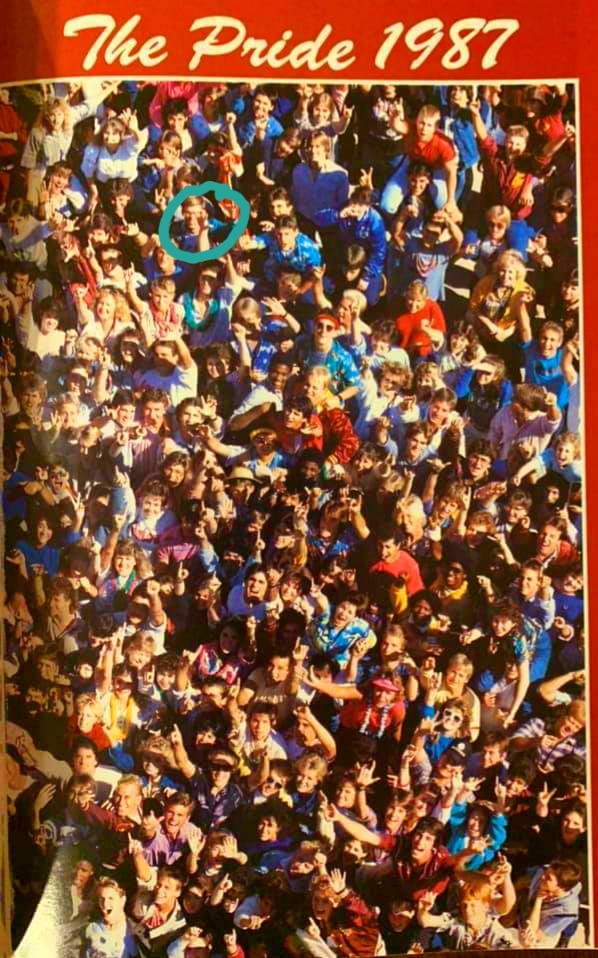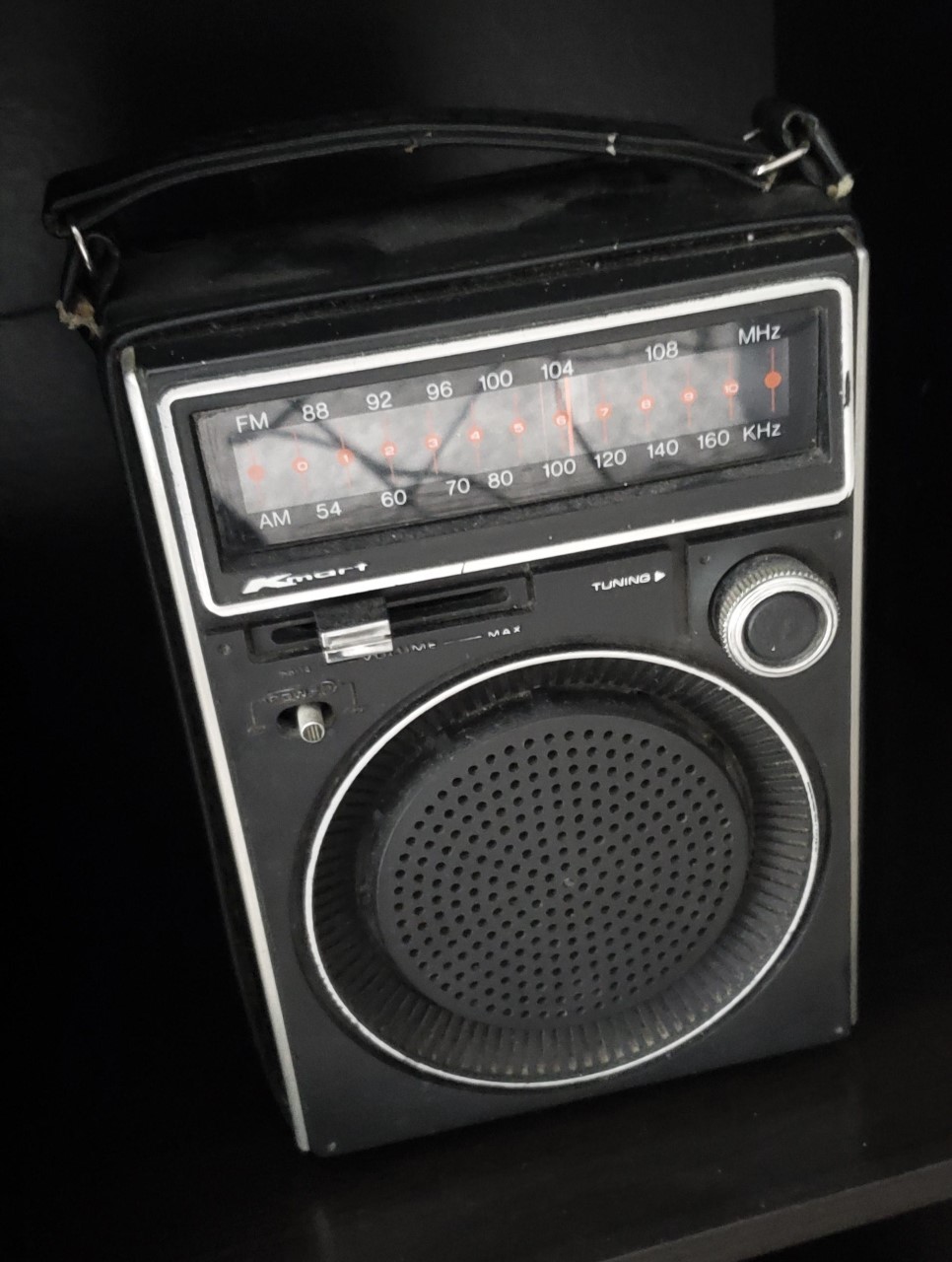WHY I’M NOT A MIAMI DOLPHINS “FAN” ANYMORE

WHY I’M NOT A MIAMI DOLPHINS “FAN” ANYMORE
Jim Kelly, that’s why.
If you’ve got just a moment, we’ll back up a few decades, and then come back to that.
I grew up in the part of Florida where the team from Tampa got the full-page color spread on the front of the sports page, and the Miami Dolphins got, on a good day, a black-and-white photo and a few words somewhere within. Miami’s quarterback was a man named Bob Griese, who started wearing eyeglasses while playing football at about the same time I got my first pair of them. An impressionable bespectacled seven-year-old kid became a Dolphins fan.
I didn’t get to watch much Dolphin’s football in the early years. Most of the time, Miami games weren’t televised where I live, and sometimes they were, but I was grounded. A true fan wouldn’t let that stop him, though. I’d put up the long, telescoping antenna on my Kmart radio, find the AM station broadcasting the game, and listen to the game for hours every week of the football season. I’ll admit, there were times that I cried when Miami lost. I’m not alone in that. Years later, Hootie and the Blowfish would sing “I’m such a baby ‘cause the Dolphins make me cry.” I felt vindicated when I heard that.
As I grew to become a bigger kid and a bigger fan, I got my first glimpse at the polarizing effect of fandom. I remember a high school classmate that I would have had a lot less arguments with, had he not been a New York Jets fan. There’d have been many fewer traded putdowns and shoulder punches, too. He took a dislike to me the moment he saw me. As was often the case in my four years at Countryside High School, I was wearing my favorite team jacket. My aquamarine Miami Dolphin jacket; I got it by saving up and sending in proofs-of-purchase from Owens Corning insulation. I still remember how excited I was when it arrived in the mail. I wore it practically every day. After Dolphin’s wins. After losses. After the football season ended. In eighty-plus-degree Florida weather, even. That’s me wearing it in the high school seniors group photo back in 1987. I was a die-hard fan.
In 1986, Jim Kelly arrived on the National Football League scene, to quarterback the Miami Dolphins’ divisional rivals, the Buffalo Bills. If the Dolphins were super, he was their Kryptonite. Every time Dolphins quarterback Dan Marino threw a touchdown pass, Jim Kelly also threw one. If the Dolphins needed to make the playoffs, they had to get past the Buffalo Bills. And that was a big problem. In the late 1980’s into the mid 90’s, Jim Kelly and the Bills beat the Dolphins fifteen times out of nineteen. A lot of those Bills victories knocked ended the Dolphins’ seasons and their fans’ hopes. I’m pretty sure Jim Kelly made me cry.
As fate would have it, for many of those years following high school, I worked with a full-blown Buffalo Bills fan. He reveled in my misery as much as he did in his team’s victories. Wearing his extra-extra-large Bills jersey to work. Meeting me at the door coming to work the Mondays after Sunday’s losses. He always managed to get me to trash-talk before the Bills played the Dolphins, and then regret every word after the Bills beat the Dolphins. It happened often. This particular coworker really got under my skin. It was always “Jim Kelly” this and “Jim Kelly” that with him, and “Did you see what Jim Kelly did?” I told him he could stuff it. I told him we’d get him the next time. The next time, next time. I told him “I hate Jim Kelly.” Hey, that’s how a fan would talk, right?
Only, I didn’t hate Jim Kelly. I hated the Buffalo Bills. Or did I? They’re professional football players; I’ve never had a single interaction with any one of them, or know much about them as individuals. How could I hate them? The words should never have come out of my mouth. But I knew this: If I’d shouted, “I hate Jim Kelly!” in a crowd of aquamarine and orange clad Dolphins fans, there would likely be cheers. There’d be agreement and acceptance. That’s how fandom works.
At the time, I had my own aqua #85 Dolphins jersey. It was rubbery, extremely hot, and a little on the tight side, I recall, but I wore it often, as a fan would do. These days, jerseys can be tricky things. Storefronts and websites scream at you. “Show Your Pride!” “Top styles for the top fan!” “Fashions for the Diehard Fan!” Are you really a fan? Well then, dress like it! An official player jersey replica, like they wear on the field on Sundays, could set you back more than three hundred dollars. Try not to think about what a hit that is on your wallet, and the fact that the player whose jersey you choose will get some of your hard-earned cash. That same player could be earning over $100,000 playing football. Per minute. Try not to think about the possibility that the name on the back of your jersey could belong to a man who abuses women. Children. Animals. Drugs. It could even be the name of a murderer. Or, it might end up being the name of someone who will take a higher contract with your least favorite team without consulting you, and leaving you holding an expensive and obsolete piece of apparel.
But. Put on the jersey of “your” team and watch what happens when like fans see it. Complete strangers will give you a grin of approval, a thumbs-up. They might fist-bump you or slap you on the back. They’ll cheer with you, share beer with you, embrace you like a cherished family member or lifelong friend. It’s an amazing example of camaraderie. And it feels great. People that you haven’t even met before let you into their fold, make you a part of their tight-knit group. You all wear the same colors, and that’s enough. You don’t really know many of your new friends well at all. Hopefully none of them are abusing women, children, animals, drugs. They might be awesome individuals, or they might be obnoxious. Fellow fans, friends forever. Look, there you are on the huge stadium screen, arms around each other, jumping up and down, pumping your fists, cheering, in a complete state of rapture.
Don’t get me wrong, it is a thing of beauty, the elation captured on the JumboTron. Watching a community of fans unite and celebrate a shared cause. It’s wonderful to see, and even more awesome to participate, to be one of them. It’s a great feeling. I know. I’ve experienced the joy. The absolute bliss. I’ve also experienced the other side.
That’s when you’re wearing the wrong colors for the wrong team, at least among the person or persons you’ve encountered. You might be jeered, mocked, shouted at, spit at, threatened. It’s justified simply by the fact that you cheer for the team they hate. Die-hard fans might resort to physical violence. Which makes sense, in a way. The very definition of die-hard includes phrases such as: “very loyal to a set of beliefs and not willing to change those beliefs,” “strongly resisting change,” and “strongly or fanatically determined or devoted.” If they believe you are the enemy, you will not change their opinion. The dictionary says that a die-hard individual will “vigorously maintain or defend a seemingly hopeless position, outdated attitude, lost cause, or the like,” and will “resist stubbornly to the last.” What they might very well be resisting is common sense and common decency.
The word “fan,” as in “Football fan,” “Dolphin fan,” etc, is short for “Fanatical.” The dictionary isn’t too complimentary of that word, either. A fanatical person, or fan, is “characterized by an extreme, uncritical enthusiasm or zeal,” and is “frenzied, violent, bigoted, rabid, obsessive.” Sounds like the kind of person that would say, “I hate Jim Kelly!”
I don’t want to be that person. I want to be balanced, not fanatical. Reasonable, not die-hard. The traits of a fanatic or a diehard might endear me to one group, but they’ll totally alienate me from many others.
This is not in any way a condemnation of professional football. Football is absolutely my favorite sport. I used to play it quite a bit when I was less cautious, less brittle. If I’m flipping channels on the television with the remote, and football comes on, that’s where I will stop, practically every time. There’s a lot to love about football.
Players of all colors come together. Individuals with colorful personalities. The field, the stands, the helmets, the uniforms, all are in vibrant color.
And we, the spectators, just need to be able to look beyond all those colors.
There are too many things that divide people. Race, gender, religion, politics, world views, personal tastes. We need to unite despite those differences, not choose our bitter rivals based on trivial things, like the logo on the caps or shirts or socks we wear. We need a zero-tolerance policy when it comes to hatred.
Here are some things I learned about Jim Kelly, the man I regretfully said that I hated all those years ago.
Jim Kelly was inducted into the National Football League Hall of Fame in 2002. If you haven’t watched the speech he gave at the ceremony, I encourage you to. Eighteen solid minutes of graciousness and gratitude. The few times he spoke of his personal accomplishments, it was to thank the individuals by name that made them possible. He expressed sincere gratitude to his teammates, coaches, and above all else, God, and family. His parents. His five brothers. The last several minutes of his speech were not about football at all. They were about his wife, Jill, his daughters, Erin and Camryn, and his five-year old son Hunter, suffering from the fatal disease Krabbe leukodystrophy. He ended his speech with these words: “The toughest person I’ve ever met in my life is my hero, my soldier, my son, Hunter. I love you, buddy.” Jim Kelly made me cry.
Jim and his wife Jill shared the story of Hunter Kelly, including his death at just eight years of age, and established the Hunter’s Hope Foundation (www.huntershope.org) to “bring encouragement and hope to families in the midst of suffering. When Hunter was first diagnosed, Jim shared, the two parents made a “lifelong commitment to make sure that kids all over the world don’t suffer like my son.”
Jim Kelly makes public appearances to inspire others, and promote the healing power of positivity. He also shares the great importance of the “Four F’s”: Faith, Family, Friends, and Fans. He has been very open about his own personal struggle with recurring cancer, not just for the prayers and support of others, but to help anyone else who is facing a cancer diagnosis. Listen to his poignant message here:
www.yourcancergameplan.com/people-living-with-cancer/with-love-me/jim
Jim Kelly is a fighter. The term “Kelly Tough” refers to him and his family. I have nothing but best wishes and admiration for the man, and a hope that I might one day inspire a small percentage of the people that he has.
Later today, my favorite team, the Miami Dolphins, will face the Buffalo Bills for the 112th time. I will watch the game, and cheer for the Dolphins, though not fanatically.
And right now, before the game even begins, I can tell you who the winner will be.
Jim Kelly. That’s who.
END
